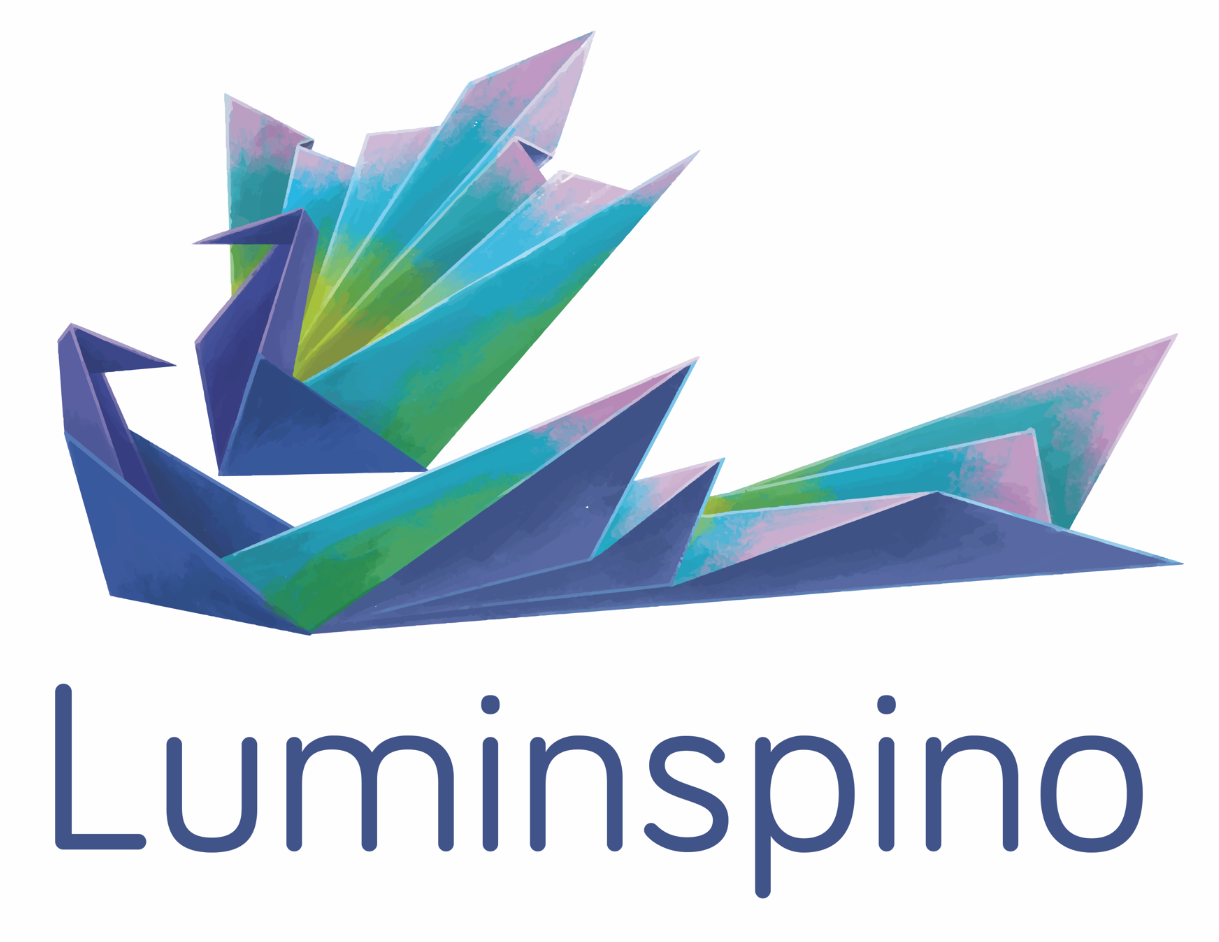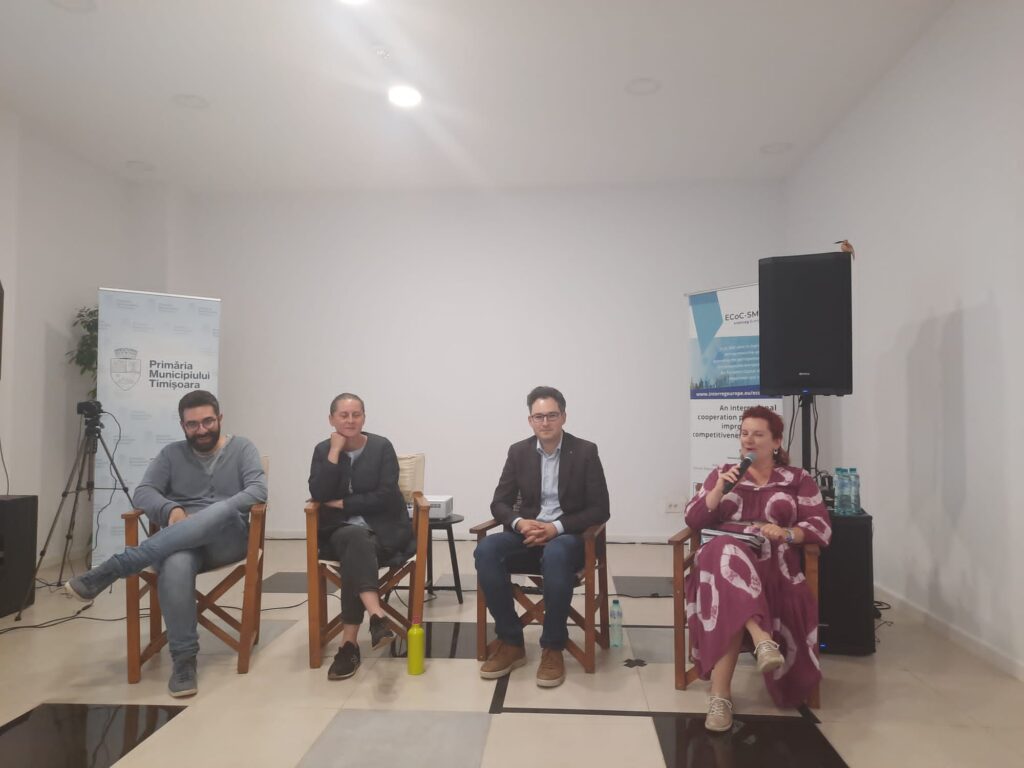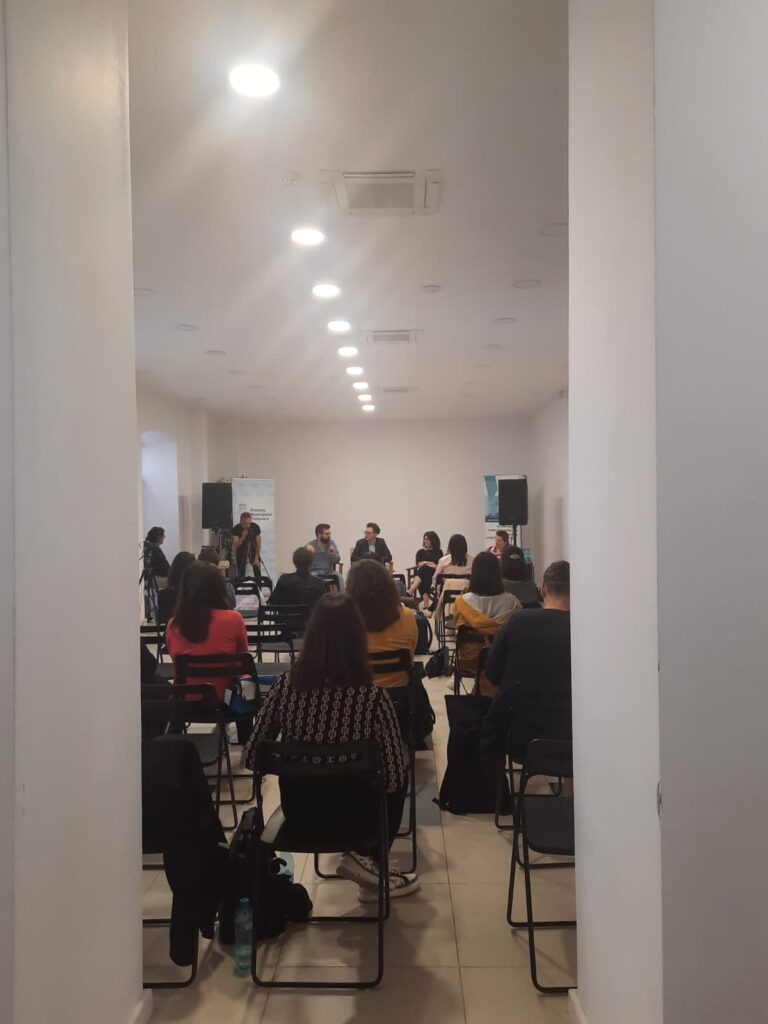During May 27-28, 2022, LUMINSPINO designed and facilitated the policy event of the Interreg Europe project „ECoC-SME – Actions for Inducing SME Growth and Innovation Via the European Capital of Culture Event and Legacy”, hosted by the Municipality of Timisoara – Romania, as one of the international consortium partners, alongside Finland, The Netherlands, Italy, Croatia, and Lithuania.
The event provided the context for purposeful and structured debates around the incentives and impact of the European Capital of Culture phenomenon on CCI businesses and organisations. Bringing over 15 speakers from the local and international arena, the topics of the event were addressed throughout presentations, facilitated talks and exchanges, within 4 Pillars of relevance for the present and future of cultural and creative industries (CCI) in Europe, namely:
- The gains and the pitfalls of the European Capital of Culture journey for CCI companies and organisations
- Why and how the CCI enterprises need nowadays to develop new processes, services, contents and practices, in order to provide more value for the society
- Concrete and impactful tools deployed by third parties / intermediaries in support of CCI entrepreneurship and skills
- Will the CCI strive or thrive, with the increasing pressure of globalisation and technological innovation?
The focus of the event encompassed:
- Understanding the status of the CCI entrepreneurship in Timisoara, with the aim to facilitate the generation of increased business impact
- Demonstrating the role of Intra- and cross-sector partnerships, in boosting the CCI performance
- Drawing lessons from evidence-based examples, and exchanging good practices
- Deriving relevant recommendations, for immediate action, policies and strategies
We are capturing below the main Recommendations, corresponding to each ot the four Pillars of the event.
Pillar 1: The gains and the pitfalls of the European Capital of Culture journey for CCI companies and organisations
The title of European Capital of Culture implies a major and complex transformation at city level, one that has spillover effects on almost all dimensions of urban life. Moreover, it implies readiness at local community level, as well as a large degree of cohesion between the key actors involved.
The local community is not only the „audience”, but it should be involved in the „production” of the ECoC. Both the ECoC and the CCI need to be embedded into the local innovation ecosystem is cornerstone, Furthermore, partnership is a complex mechanism, which needs to become systemic in order to bring authentic benefits.
Pillar 2: Why and how the CCI enterprises need nowadays to develop new processes, services, contents and practices, in order to provide more value for the society
On average the share of CCI companies out of all companies (i.e. total services) across the EU28 exceeds 10%, making it an important contributor to local economies. In Timișoara, the percentage of CCI companies is estimated at 5.4%, at a short distance from the ICT companies, estimated at 7.4%, from the total number of companies at local level. CCI make over 4% of the EU GDP, and on an average 3% of the employment (in RO only 1-2%). Recently, the EIF took interest in the CCI, as a promising sector to invest in, from the point of view of private investments, as well as loans / guarantee instruments.
The quadruple helix is deemed to respond to the needs of the CCI entrepreneurs (based on needs’ analysis), lobby for getting the right legislation in order to protect the creators, facilitating some type of aggregation among the CCI entrepreneurs, as well as mapping of CCI ecosystem actors.
Pillar 3: Concrete and impactful tools deployed by third parties in support of CCI entrepreneurship and skills
The progress towards creating a local innovation ecosystem, would as well be conducive to network opportunities, collaboration, co-creation and knowhow transfer between education, research, business, public and third-sector organisations, within the cultural and creative sectors and with other sectors of the society and the economy. Moreover, as confirmed by the recently launched European Pact for Skills (2021), it would lead to providing researchers and students in many disciplines, and entrepreneurs of the cultural and creative industries and other sectors, with the knowledge and skills necessary to deliver innovative solutions and to turn them into new cultural, societal, and business opportunities.
A set of support instruments are favoured, such as provision of internationalisation support for CCI entrepreneurs, training programme on cultural management or training on augmented reality for CCI actors.
Pillar 4: Will the CCI strive or thrive, with the increasing pressure of globalisation and technological innovation?
As stated by the EC Factsheet on CCI (2021), globalisation, digitisation and technological innovation have a strong impact on European industries. Those developments have changed the way in which artists produce and distribute their works and relate to their audiences, changing the traditional business models of CCIs. In addition, the increasing power of non-European content production companies has had a huge impact on the traditional value chain.
There is a clear focus on capacity building to be followed through, accompanied by the next steps of creating the optimal framework for collaboration within the cultural and creative industries ecosystem.


